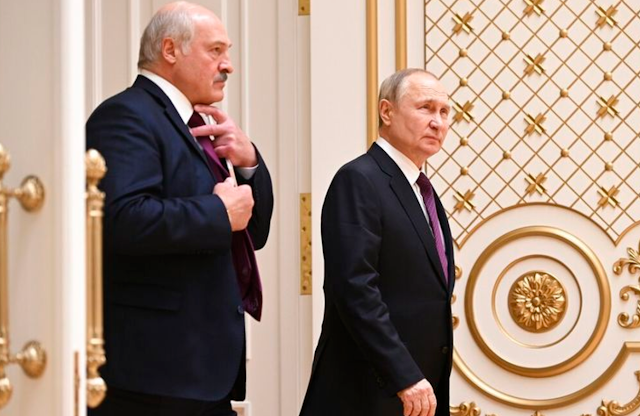Reasons Explained for Russia's Placement of Tactical Nuclear Weapons in Belarus
Introduction
Belarus has provided an explanation for the placement of Russia's tactical nuclear weapons within its territory. Alexander Volfovich, the Secretary of State of the Belarus Security Council, emphasized that Western countries left Belarus with no choice but to deploy Russia's tactical nuclear weapons. He also cautioned the West to exercise caution and not "cross the line" when it comes to crucial strategic issues.
Reasons for Deployment
Volfovich stated that the withdrawal of weapons after the fall of the Soviet Union in 1991 was a reasonable decision at that time. This was due to the security assurances and the absence of sanctions from the United States (US). However, he highlighted that everything has changed now, and all promises made in the past have been lost forever. In an interview with the Belarusian Government's television, as reported by Belta News Agency, Volfovich emphasized that Belarus is the most loyal ally of Russia among the former Soviet countries. The country, led by President Alexander Lukashenko since 1994, has allowed its territory to be used for Russia's invasion of Ukraine since February 2022.
Deployment of Tactical Nuclear Weapons
Last week, Russia decided to deploy its tactical nuclear weapons in Belarus to gain certain advantages on the battlefield. Russia justified its military operations in Ukraine as a response to what it perceives as the "collective Western" push to ignite a proxy war and defeat Moscow. Volfovich explained that the deployment of nuclear weapons in Belarus is a strategic preventive measure. He emphasized that if Western politicians truly understand the consequences, they would not cross any boundaries. Volfovich, quoted by Reuters, stated that any attempt to use any form of weapons, including tactical nuclear weapons, will have irreversible consequences. Lukashenko announced last week that the weapons had already been relocated, although the exact timing of their placement remains unclear. The United States has condemned the potential deployment of nuclear weapons in Belarus but maintains its stance on the use of such weapons has not changed. Western sanctions were imposed on Belarus long before the invasion due to Lukashenko's human rights violations, particularly the crackdown on mass protests against what the opposition referred to as his fraudulent reelection in 2020.
Post-Soviet Independence and Weapons Return
Following their independence from Soviet rule, Belarus, Ukraine, and Kazakhstan agreed to have their weapons taken and returned to Russia as part of global efforts to curb proliferation.
Conclusion
Belarus has explained the reasoning behind the placement of Russia's tactical nuclear weapons within its borders. The geopolitical landscape and broken promises from the West have led Belarus to make this decision. The deployment of nuclear weapons serves as a strategic deterrent, and any attempt to overstep boundaries will have dire consequences. As tensions escalate, it remains to be seen how this situation will unfold and what impact it will have on the broader international community.
